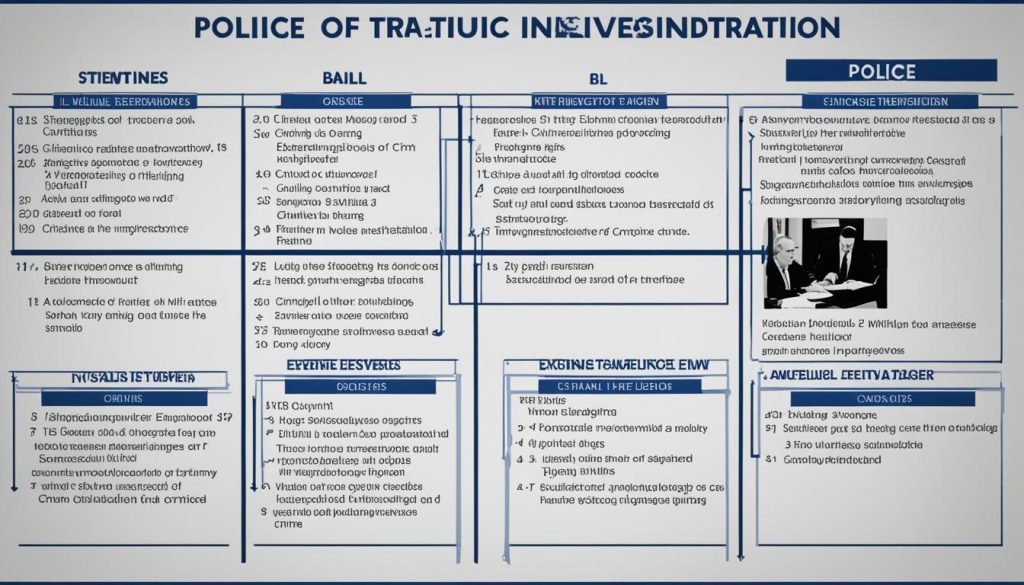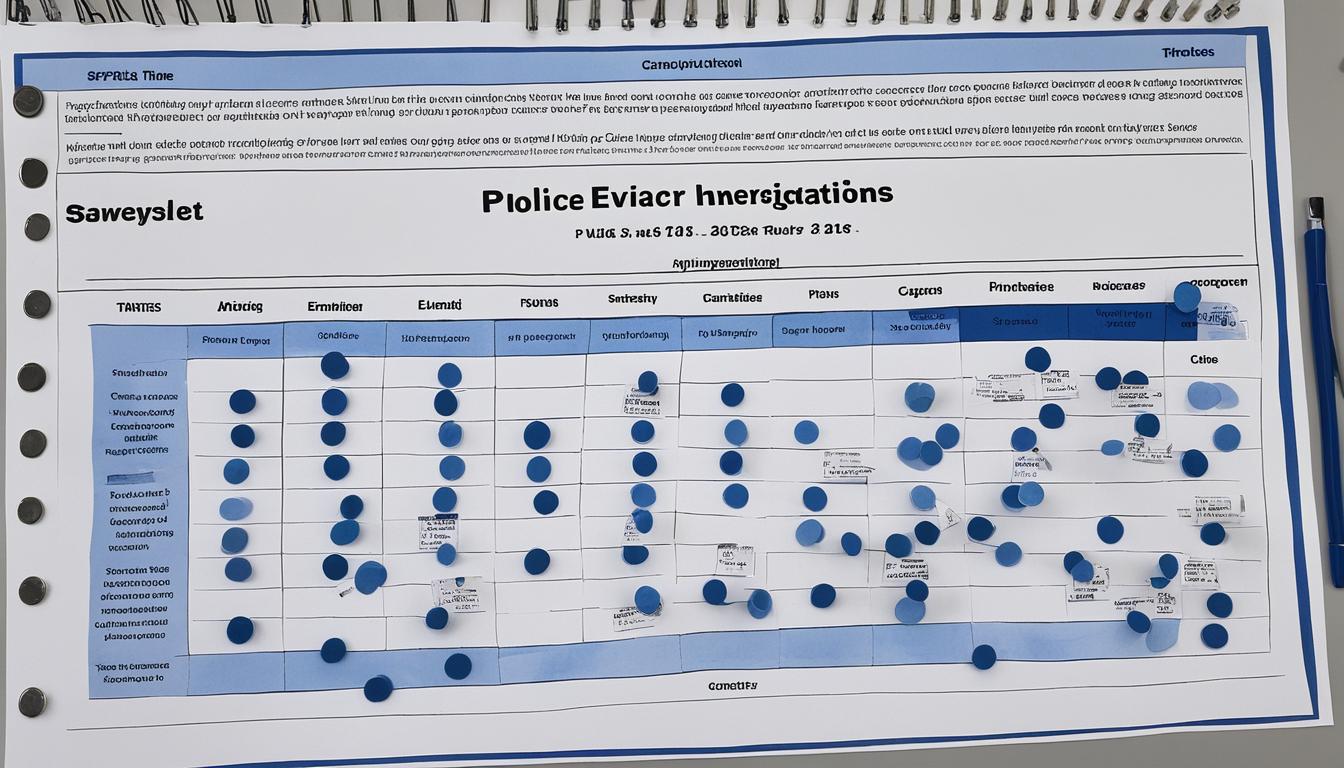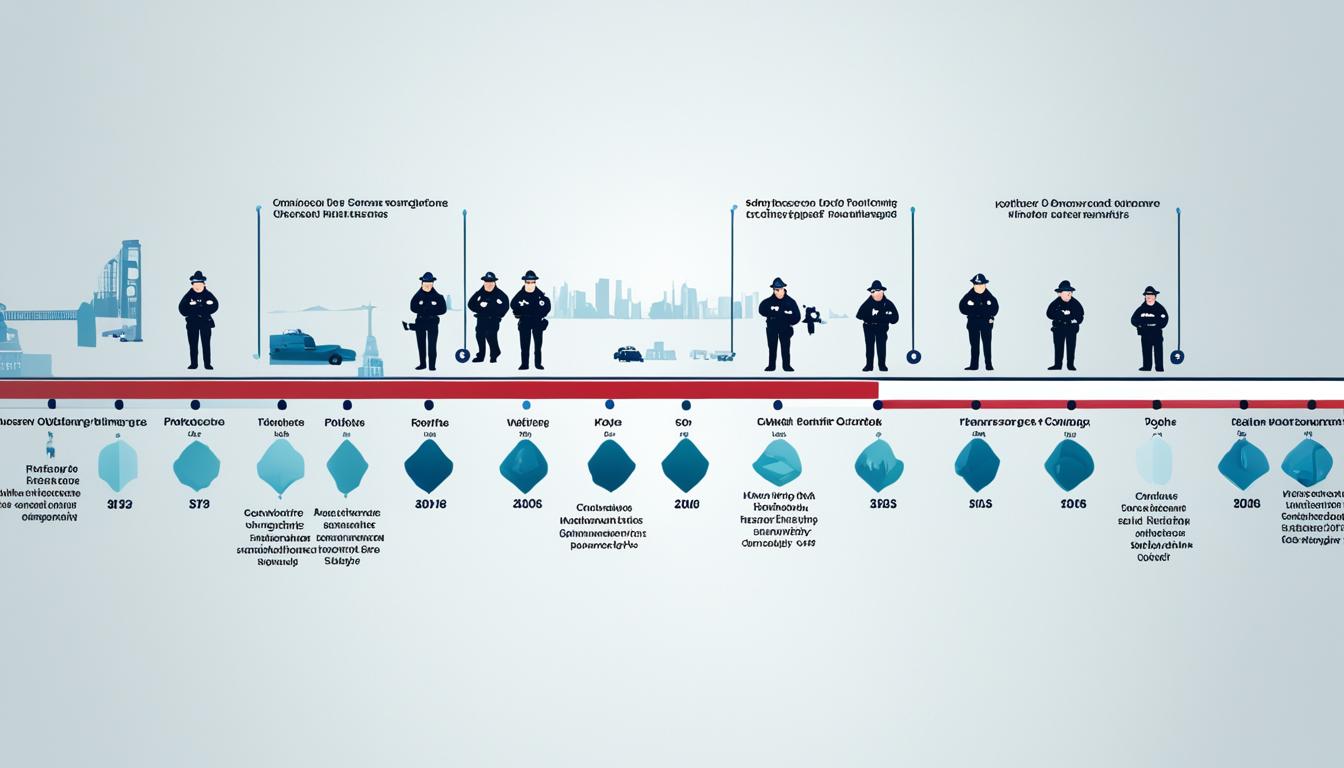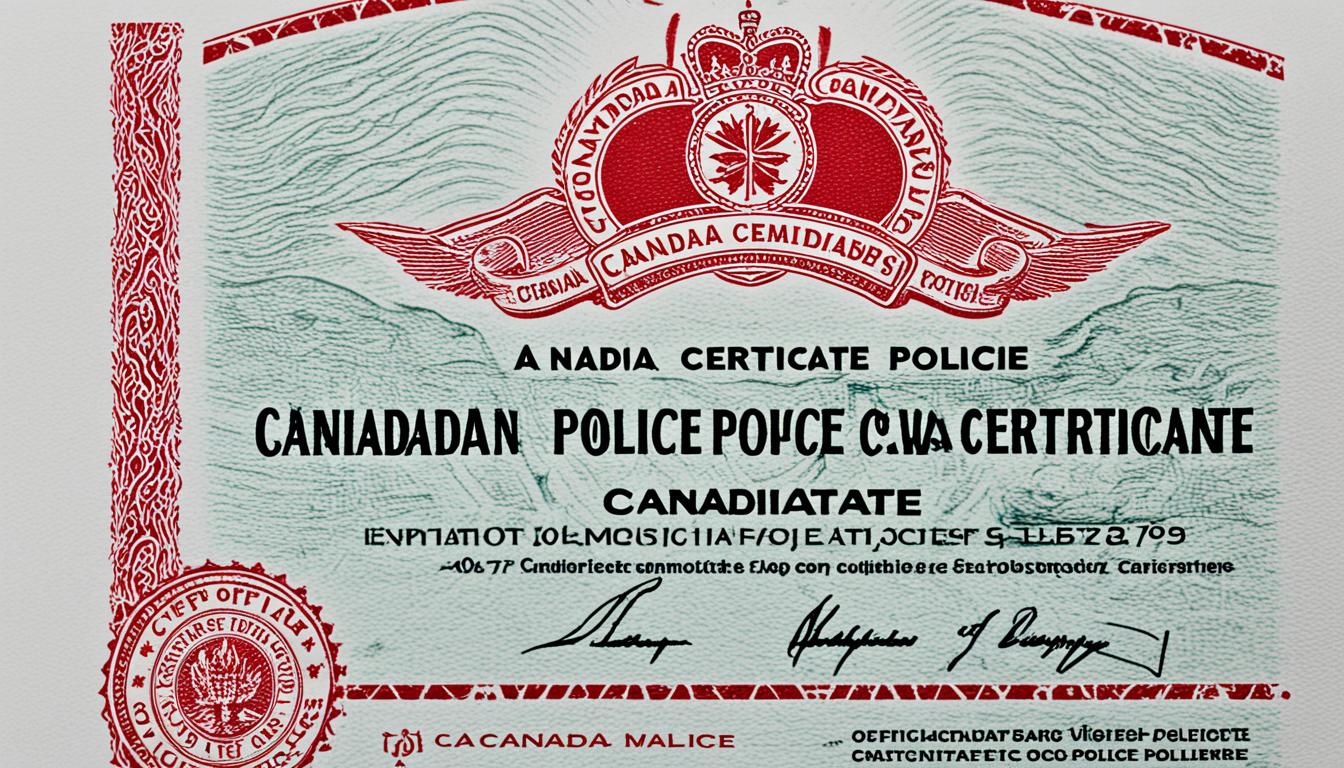Duration of Police Investigations Explained
Did you know that the duration of a police investigation can vary greatly depending on a range of factors? From the type of offense to the amount of evidence gathered, several elements contribute to the length of time it takes for police investigations to conclude. Let’s delve into the details and uncover the timeline of police investigations in Canada.
Key Takeaways:
- The duration of a police investigation in Canada is not limited by a specific timeframe, except for certain cases that have a maximum time limit of 6 months from the date the offense took place to start proceedings in the Magistrates Court.
- Complex and serious cases may take longer to investigate due to the need for interviews, forensic evidence analysis, digital device examination, and reports from experts.
- Factors affecting the length of a police investigation include the type of offense, the amount of evidence, the availability of witnesses and experts, and the workload of the investigating agency.
- Pre-charge bail allows the police to extend the investigation period for up to three months, while individuals released under investigation may be in limbo until the investigation concludes.
- It is advisable for individuals under investigation to seek legal representation and consult with a criminal defense attorney to navigate the process and protect their rights.
Factors Affecting the Duration of a Police Investigation
Several factors can influence the time frame of a police investigation. Understanding these factors can provide insight into why some investigations take longer than others. Here are some key elements that can impact the length of a police investigation:
- The Type of Offense: Different types of offenses may require varying amounts of investigation time. For example, complex and serious cases involving major crimes like homicide or fraud often involve more extensive investigation processes, resulting in a longer time frame.
- Evidence Collection and Analysis: The amount of evidence that needs to be gathered and analyzed can significantly affect the duration of an investigation. Collecting and examining physical evidence, conducting forensic analyses, and obtaining expert opinions can be time-consuming processes.
- Availability of Witnesses and Experts: The availability and cooperation of witnesses and experts can impact the speed at which an investigation progresses. Scheduling interviews, obtaining statements, and coordinating with external individuals can introduce delays.
- Workload of the Investigating Agency: The workload and resources of the investigating agency can influence the pace of an investigation. Limited staffing, high caseloads, and competing priorities can all contribute to longer investigation timelines.
In complex and serious cases, investigations often require extensive forensic analysis, multiple interviews, and coordination with various individuals and agencies. The turnaround time for forensic evidence, such as DNA analysis, can also impact the duration of the investigation. It’s important to consider these factors when evaluating the time frame of a police investigation.

An image illustrating the various factors affecting the duration of a police investigation.
Pre-Charge Bail and Investigation Timeline
When an individual is released on pre-charge bail, the duration of a police investigation can vary. Initially, the police have 28 days to continue their investigation. However, this timeline can be extended up to three months by a senior police officer, provided there are reasonable grounds for the extension.
Pre-charge bail allows the police to gather additional evidence, conduct interviews, and seek permission from the Crown Prosecutor to charge the individual. The length of the investigation process can depend on the progress made during the pre-charge bail period.
It’s important to note that there is no specific time limit for the investigation to conclude while an individual is on bail. The police have the authority to re-bail the individual multiple times, potentially prolonging the investigation timeline.

| Investigation Process Duration | Average Police Investigation Timeline |
|---|---|
| Initial Investigation Period (pre-charge bail) | 28 days (with possible extension up to 3 months) |
| Prosecutor’s Charging Decision | Varies based on the complexity of the case |
Released Under Investigation and Changes in Process
The Police and Crime Act 2017 introduced a significant change in the way individuals are handled during police investigations. Instead of being placed on pre-charge bail, most individuals are now released under investigation. This shift has eliminated specific investigation deadlines for many offenses and has altered the level of contact between the police and the individuals being investigated.
While an individual is released under investigation, the police are not legally obligated to keep them informed of the progress being made in the case. This lack of communication can result in individuals being left in a state of uncertainty for extended periods, with no clear timeline for the conclusion of the investigation. It is not uncommon for individuals to remain in this state of limbo for weeks, months, or even years.
However, it is important to note that any information provided by the individual during interviews or through pre-charge representations can have a significant impact on the overall duration of the investigation. While there may not be specific time limits imposed by the police, proactive cooperation and the sharing of information can potentially expedite the process.
To effectively navigate the uncertainty of being released under investigation, it is advisable for individuals to seek legal representation and consult with a criminal defense attorney. Having legal guidance can help protect their rights and ensure they make informed decisions throughout the investigation process.
| Key Points | Implications |
|---|---|
| Major shift from pre-charge bail to release under investigation | Increased uncertainty and lack of communication during the investigation |
| No specific time limits for many offenses | Investigations can be open-ended and potentially prolonged |
| Information provided by individuals can impact investigation duration | Cooperation and sharing of information can potentially expedite the process |
| Seeking legal representation is advisable | Protects individual rights and provides guidance throughout the investigation |
Implications for Individuals Under Investigation
If you find yourself under police investigation in Canada, it’s important to understand that the duration of the investigation can vary and may be prolonged. The length of time it takes for a police investigation to conclude depends on several factors, such as the complexity of the case and the amount of evidence that needs to be gathered and analyzed.
To protect your rights and navigate the investigation process effectively, it is highly recommended to seek legal representation and consult with a criminal defense attorney. Having an experienced lawyer by your side can help ensure that you understand your rights throughout the investigation and receive proper guidance.
During a police investigation, it is crucial not to provide any information without having an attorney present. Statements made without legal advice could potentially be used against you, so it is essential to have a professional who can guide you through the process and protect your interests.
By understanding the investigation timeline and the factors that can affect its duration, individuals under investigation can better prepare themselves for the potential length of the process. Working closely with a knowledgeable attorney can help alleviate concerns and provide valuable insight into the progress and possible outcomes of the investigation, enabling you to make informed decisions every step of the way.
- The Role of Police in Community Safety & Unity - October 6, 2025
- Quebec Police Officer Salary Insights 2023 - July 13, 2025
- Canada Arrest Protocol: What Police Say Upon Arrest - June 12, 2025




















Post Comment